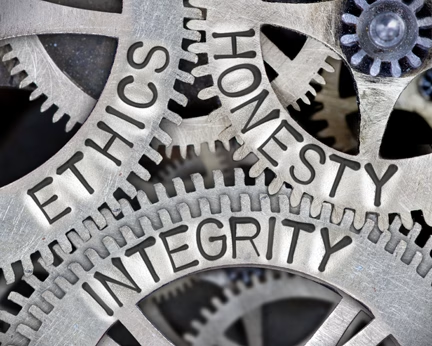
Ethical Practices in the Gemstone Industry
Offered by the International School of Gemology
Why Ethics Matter in Gemology
The gemstone industry is at the forefront of global commerce and culture. With increasing awareness of conflict stones, human rights, and environmental impact, professionals must demonstrate responsibility, transparency, and ethical awareness. This course equips you with the tools to do just that.
What You’ll Learn
- Conflict gemstones and the Kimberley Process
- Fair trade principles and certified ethical sourcing
- Human rights and environmental responsibility in mining
- Disclosure and transparency in gem grading and sales
- Cultural sensitivity and professional accountability
Course Features
- 10 detailed lessons with real-world case studies
- Downloadable Jeweler’s Code of Ethics
- End-of-course quiz and final project
- Official Certificate of Completion
- Fully online and self-paced
What You’ll Earn
The Certified in Ethical Standards for Gemology certificate and badge to demonstrate your education and commitment to ethics in the gemstone profession.
Who Should Enroll?
This course is ideal for jewelers, gemologists, appraisers, students, and retailers who want to uphold the highest standards of ethical practice in the gem trade.
Lesson 1: Introduction to Ethics in the Gem Trade
An In-depth Exploration of Ethical Standards in the Gemstone Industry
Definition of Ethics vs. Legality
Ethics refers to the moral principles that govern a person’s behavior or the conducting of an activity. In the context of the gem trade, ethics involves ensuring fair practices, transparent transactions, and responsible sourcing of gemstones. Legality, on the other hand, refers to the compliance with laws and regulations set by governing bodies. While a practice may be legal, it is not necessarily ethical. It is crucial to distinguish between these two concepts, as the gem trade often operates in regions where legal frameworks may be weak or poorly enforced.
Why Ethics Matter in the Gemstone Industry
Ethics play a vital role in the gemstone industry for several reasons:
- Trust and Reputation: Ethical practices build trust among consumers, traders, and other stakeholders. A reputation for integrity and fairness can enhance business relationships and open new market opportunities.
- Sustainability: Ethical practices contribute to the long-term sustainability of the gem trade. Responsible sourcing and fair labor practices help preserve the environment and ensure the well-being of communities involved in gemstone production.
- Consumer Awareness: With increasing consumer awareness about the origins of products, ethical practices can influence purchasing decisions. Consumers are more likely to support businesses that demonstrate a commitment to ethical standards.
The Impact of Unethical Practices: Environmental, Social, and Economic
Unethical practices in the gemstone industry can have severe consequences:
- Environmental Impact: Unregulated mining can lead to deforestation, soil erosion, water contamination, and loss of biodiversity. These environmental damages can have long-lasting effects on ecosystems and local communities.
- Social Impact: Poor working conditions, child labor, and exploitation are prevalent issues in the gemstone trade. Unethical practices can perpetuate poverty, inequality, and human rights abuses.
- Economic Impact: Unethical practices can distort the gemstone market, creating unfair competition and price manipulation. This can undermine the economic stability of regions dependent on gemstone production and trade.
Case Studies: Famous Ethical Scandals and Their Outcomes
- Blood Diamonds: The term “blood diamonds” refers to gemstones mined in war zones and sold to finance armed conflict against governments. The most infamous case is the Sierra Leone Civil War, where rebel groups used diamond revenue to fund their operations. This led to international efforts to establish the Kimberley Process Certification Scheme, aimed at preventing the trade in conflict diamonds.
- Marange Diamond Fields: In Zimbabwe, the Marange diamond fields gained notoriety for human rights abuses, including forced labor, torture, and killings by security forces. The international community imposed sanctions, and efforts were made to improve transparency and oversight in the region.
- Myanmar’s Jade Trade: The jade industry in Myanmar has been linked to severe environmental degradation, corruption, and human rights violations. The involvement of military and political elites in the trade has exacerbated the conflict and hindered democratic reforms in the country.
In conclusion, understanding and adhering to ethical standards in the gem trade is essential for fostering trust, sustainability, and social responsibility. By addressing the environmental, social, and economic impacts of unethical practices, the gemstone industry can move towards a more transparent and fair future.
Let’s test your knowledge of the information in this lesson:
